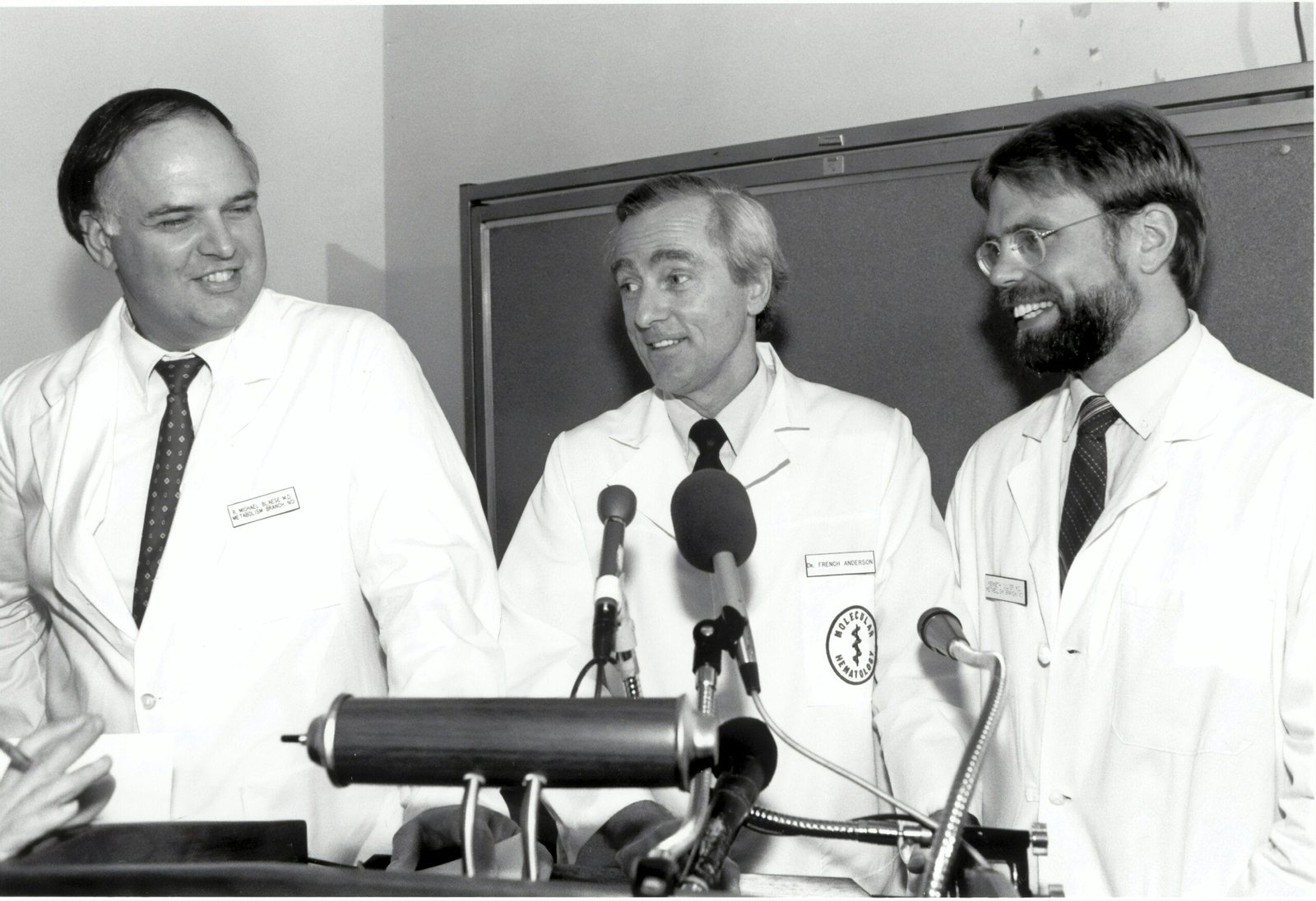CRISPR Technology and Gene Therapy: Pioneering the Future of Personalized Medicine
Understanding CRISPR Technology
The term CRISPR Technology and Gene Therapy stands for Clustered Regularly Interspaced Short Palindromic Repeats. It is a breakthrough in gene editing. At the core of CRISPR are two crucial components: guide RNA and Cas9 protein. Guide RNA is a template that can be tailored to guide the Cas9 protein to any point in the genome. The accuracy is exceptional. Researchers can now edit or knock out faulty genes. This capability allows the development of new forms of gene therapies.
The mechanism of CRISPR is fairly simple: Introduce guide RNA to the cell. It recognizes a specific sequence of its DNA. Next, attach Cas9 to the point for causing a double-strand break. The DNA break triggers the cell to start its DNA repair processes. These processes can be repurposed either to silence the expression of a gene or insert new genetic material. CRISPR stands out significantly. It replaces all the other gene editing tools previously in use. It also brings them to the forefront of medicine today.
CRISPR in Personalized Medicine: Revolutionizing Gene Therapy and Targeted Treatments
Outside the lab, CRISPR is going to make an immense difference with practical applications regarding personalized medicine. For instance, in gene therapy, CRISPR technology can be tailored to fit. It can be customized according to the unique genetic makeup of patients with hereditary disorders. According to CRISPR, certain targeted genes cause certain diseases. As a result, treatments can be fitted to be more effective than ways applied before.

Further, the impacts of the technology CRISPR cover almost all domains of the health care practice. Here, for example, the new therapies involving genes could heal some diseases previously regarded as impossible to cure. The latest studies on CRISPR technologies establish a new foundation. They set the stage for a revolution in diagnosing and treating genetic disorders. Given further investigations about its functionality, it would soon alter the very terrain of the gene-editing area.
Applications of CRISPR in Medicine
CRISPR has been one of the revolutionary forces in medicine. Its impact is more significant in its application as a tool in gene therapy. Among its essential benefits to medicine is its ability to edit genes precisely. This ability targets various genetic disorders, something never previously achieved. The CRISPR ability to define sequences within the DNA of an individual is crucial. It enables modification that corrects the root cause of diseases such as sickle cell anemia. This also applies to cystic fibrosis. What these innovations reveal is how CRISPR technology can lay the groundwork for effective and personalized forms of treatment.
It has been applied in the field. Scientists are now researching to learn about genomics changes that trigger tumorigenesis. They aim to genetically engineer immune cells to identify and destroy cancer cells. Several clinical trials have been initiated to test the safety of CRISPR-edited T-cells. These trials are underway for the treatment of different cancers. This approach is termed promising gene therapy with enhanced efficacy of treatment.
CRISPR’s Impact on Medicine: Advancing Targeted Therapies and Curing Untreatable Conditions
Current clinical trials using CRISPR are targeting a variety of diseases with some very promising results already reported. As of October 2023, scientists strive to expand the use of CRISPR in medicine. They aim to push the frontiers open by interdisciplinary collaboration. This allows them to exploit the power of developing therapies. These therapies may control or cure conditions previously declared untreatable. This continuous discovery of CRISPR provides the ability to transform the practice realm. It opens doors for tailored care based on a patient’s genetic profile.
The impact of CRISPR in medicine is monumental, looking forward to the future. CRISPR offers a new direction to overcome roadblocks in gene therapy. It redefines the treatment of diseases through precision medicine. This also allows for the personalization of treatment options.
Benefits of Gene Therapy Through CRISPR
CRISPR technology is an important breakthrough in gene therapy. It offers numerous benefits. These benefits can dramatically transform the way healthcare is delivered. By unleashing the power of CRISPR in medicine, scientists can manipulate genetic material with unprecedented precision. This new approach presents solutions to previously intractable genetic disorders. It also delivers individually tailored treatments based on each patient’s unique genetic makeup. This is the direction in which such advances are moving toward effective and targeted therapies.
One significant benefit of CRISPR-based gene therapy is the possibility of reducing reliance on conventional treatments. These traditional treatments often carry a variety of side effects. Traditional treatments often involve generalized methods that are not specific to the genetic condition. CRISPR, however, enables a straightforward intervention at the molecular level, thus providing a better remedy for genetic conditions. For example, patients diagnosed with sickle cell anemia have undergone gene editing. This innovative therapy corrects their genetic defect. Subsequently, their health improves.
CRISPR Success Stories: Revolutionizing Gene Therapy for Improved Patient Outcomes
Moreover, numerous case studies reveal the promise of CRISPR technology for medical and other purposes. For instance, clinical trials done on Duchenne muscular dystrophy patients have revealed marked improvements post-treatment using CRISPR-based therapies. Examples like these show that gene therapy can revolutionize treatment. It can provide customized strategies for better outcomes for patients. It also offers a better quality of life.
We move towards the future of gene editing. CRISPR plays an ever-increasing role in reshaping the landscapes of therapy. Continuous research and development in these technologies is crucial. They will help to reduce the burden of genetic diseases. These efforts will also assist in creating customized, patient-centered healthcare options for individual needs.
The Future of CRISPR and Gene Editing
As we look towards the future of CRISPR technology, it’s clear. This innovative gene-editing tool will revolutionize personalized medicine. Currently, ongoing research and innovation on CRISPR continue. These scientists will provide answers to some of the most difficult genetic disorders. These were previously without a cure. Researchers also pursue other new applications. These include developing tailor-made therapies. Such therapies could target the exact genes causing a host of diseases.
Among the most promising applications of CRISPR in medicine is enhancing gene therapy. There, scientists strive to be able to make personalized therapies, taking into account the unique genetic constitution of every patient. This promises higher cure rates. It also reduces the risks from the adverse effects classically associated with such therapies. CRISPR-based innovative gene therapies will probably redefine the management of genetic disorders. They will bring us toward a more personalized and precise health system.
Navigating the Challenges: The Regulatory and Ethical Implications of Widespread CRISPR Use
But the way the widespread use of CRISPR and gene editing in the clinic is not without its challenges. Regulatory barriers are significant. Governments and health organizations need to achieve a balance between expedited innovation in these areas. They must also ensure necessary safety and ethics measures. Discussions about the ethical aspects of gene editing focus on the likelihood of accidents or designer babies. These issues require elaborate policy structures. These structures should govern research efforts, ensuring the public interest is not hampered.
In summary, future directions of CRISPR technology represent tremendous promise for gene therapy and personalized medicine. Breakthroughs in the use of CRISPR will occur as this research continues. These advancements will greatly accelerate strides and innovations in healthcare delivery. They will also improve patient outcomes for generations to come. The introduction of CRISPR into medicine signals an era of precise treatment options. Individualized therapies become the main cornerstones of therapeutic interventions.







